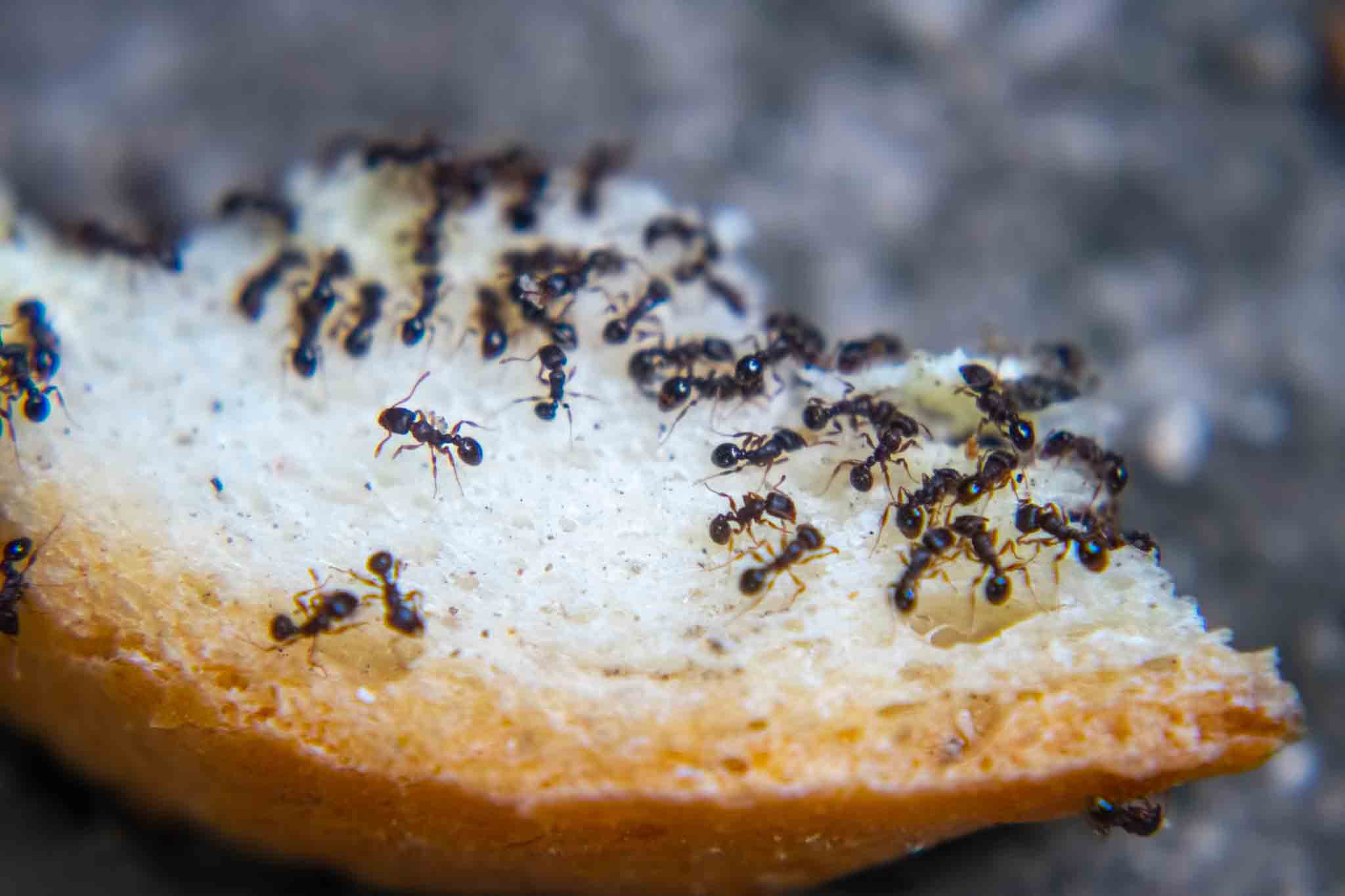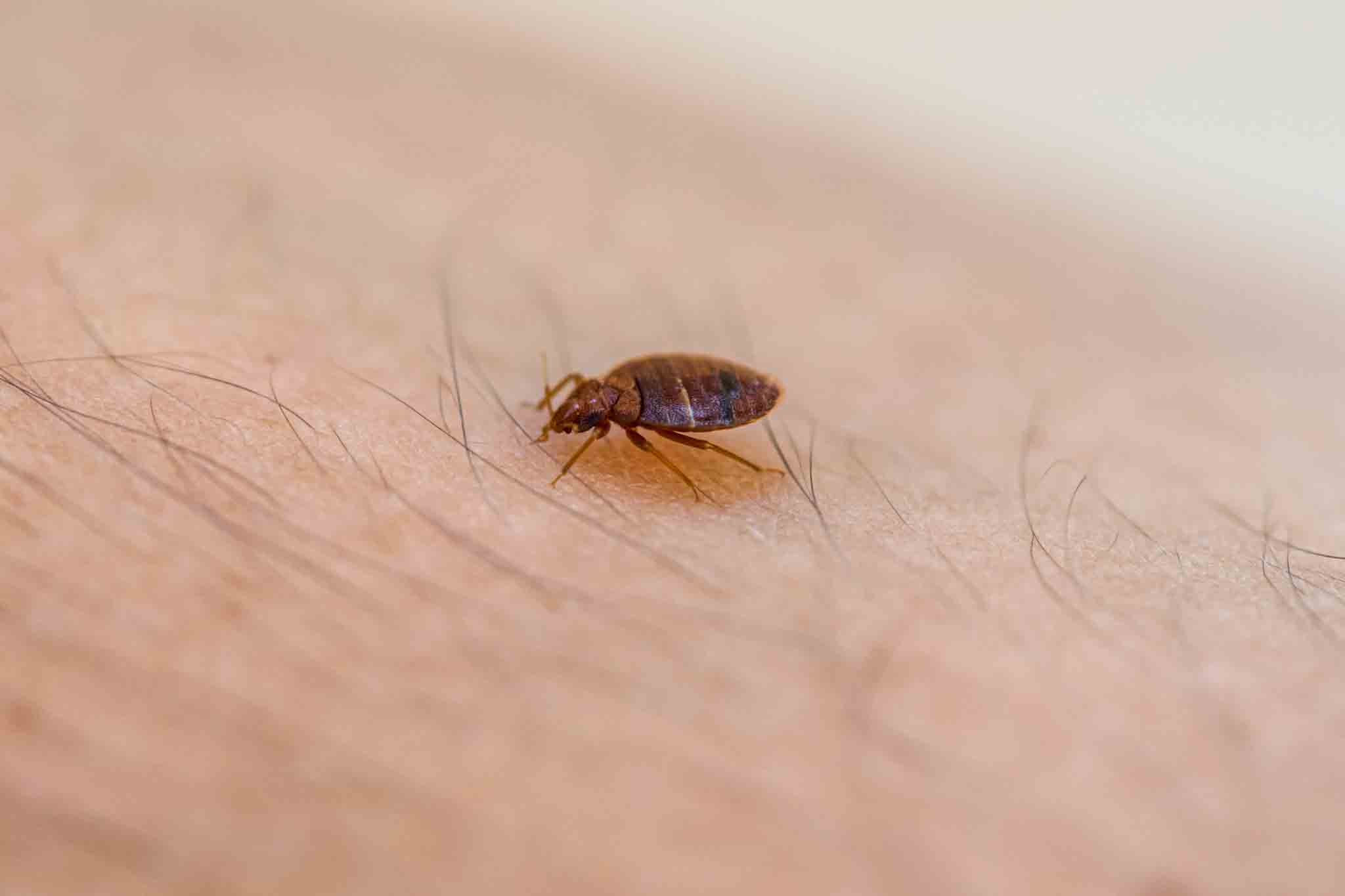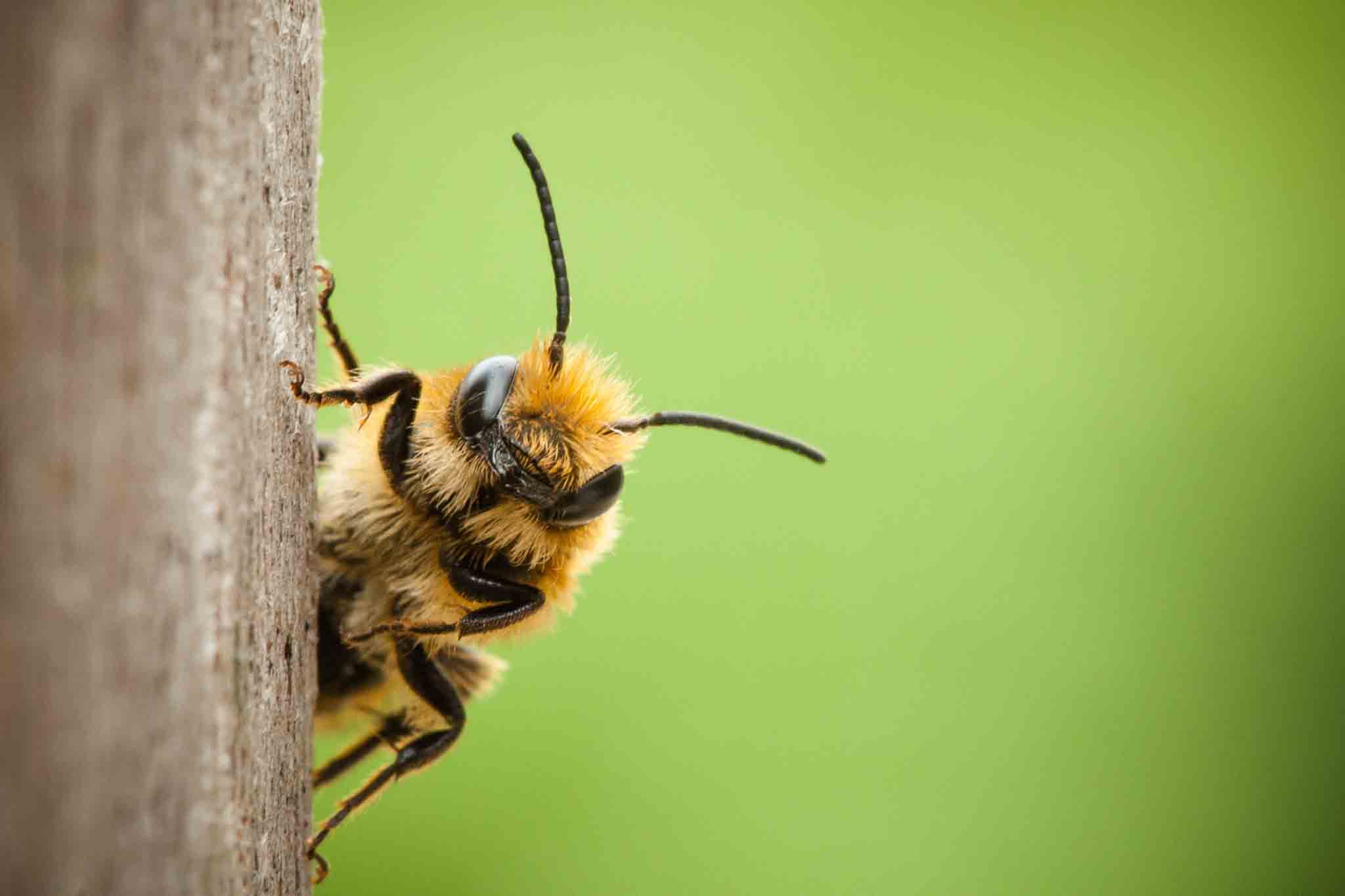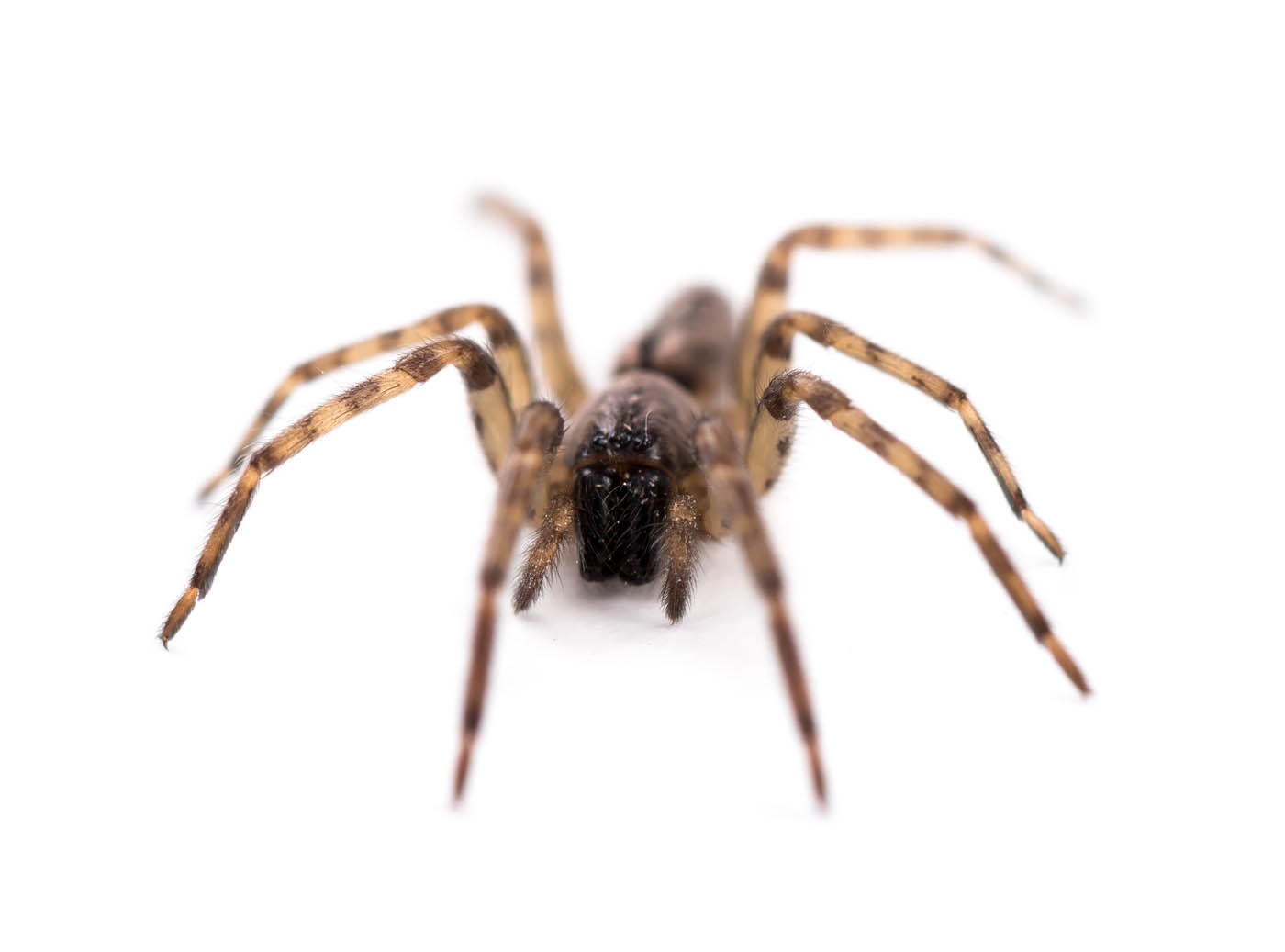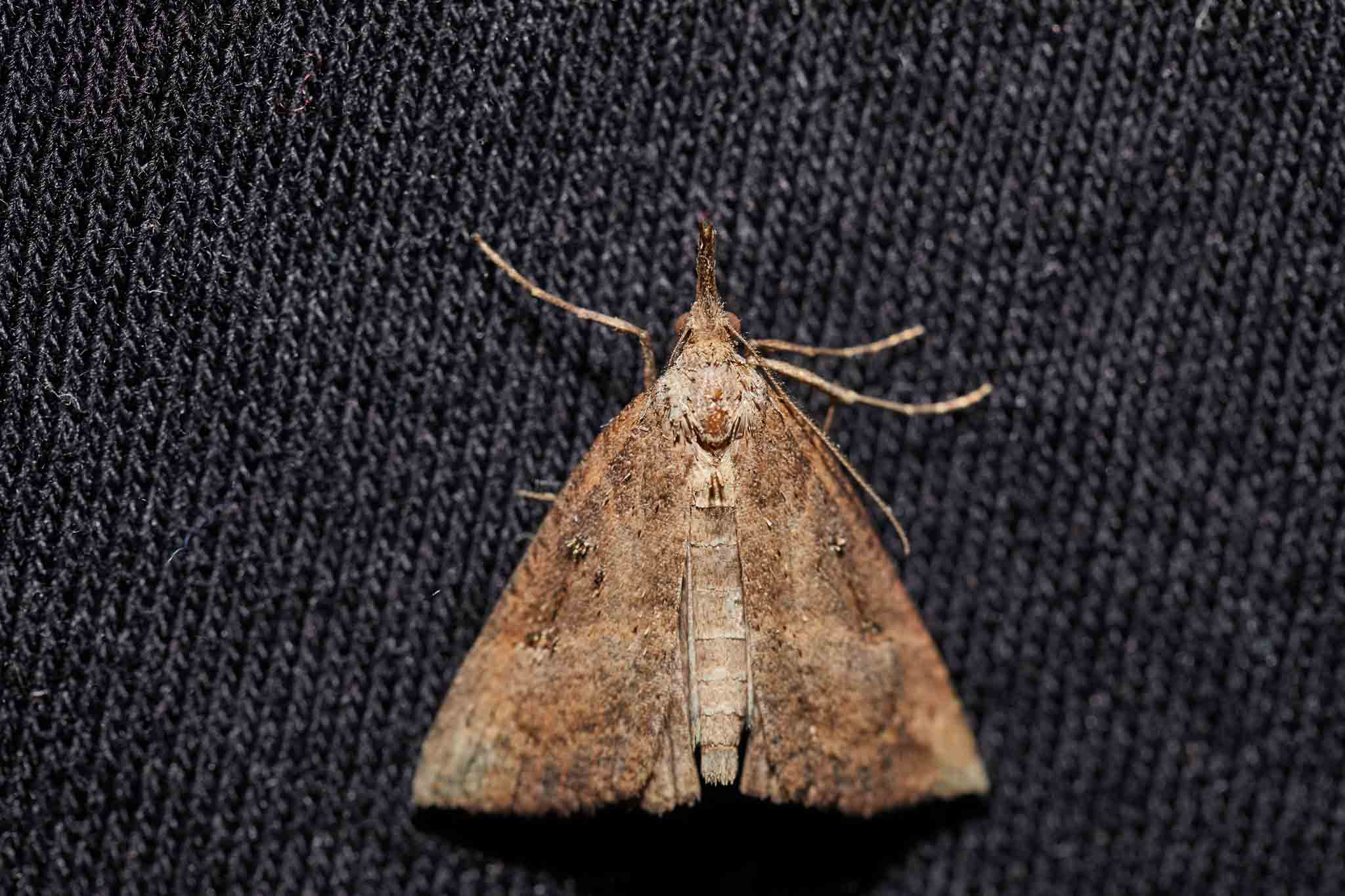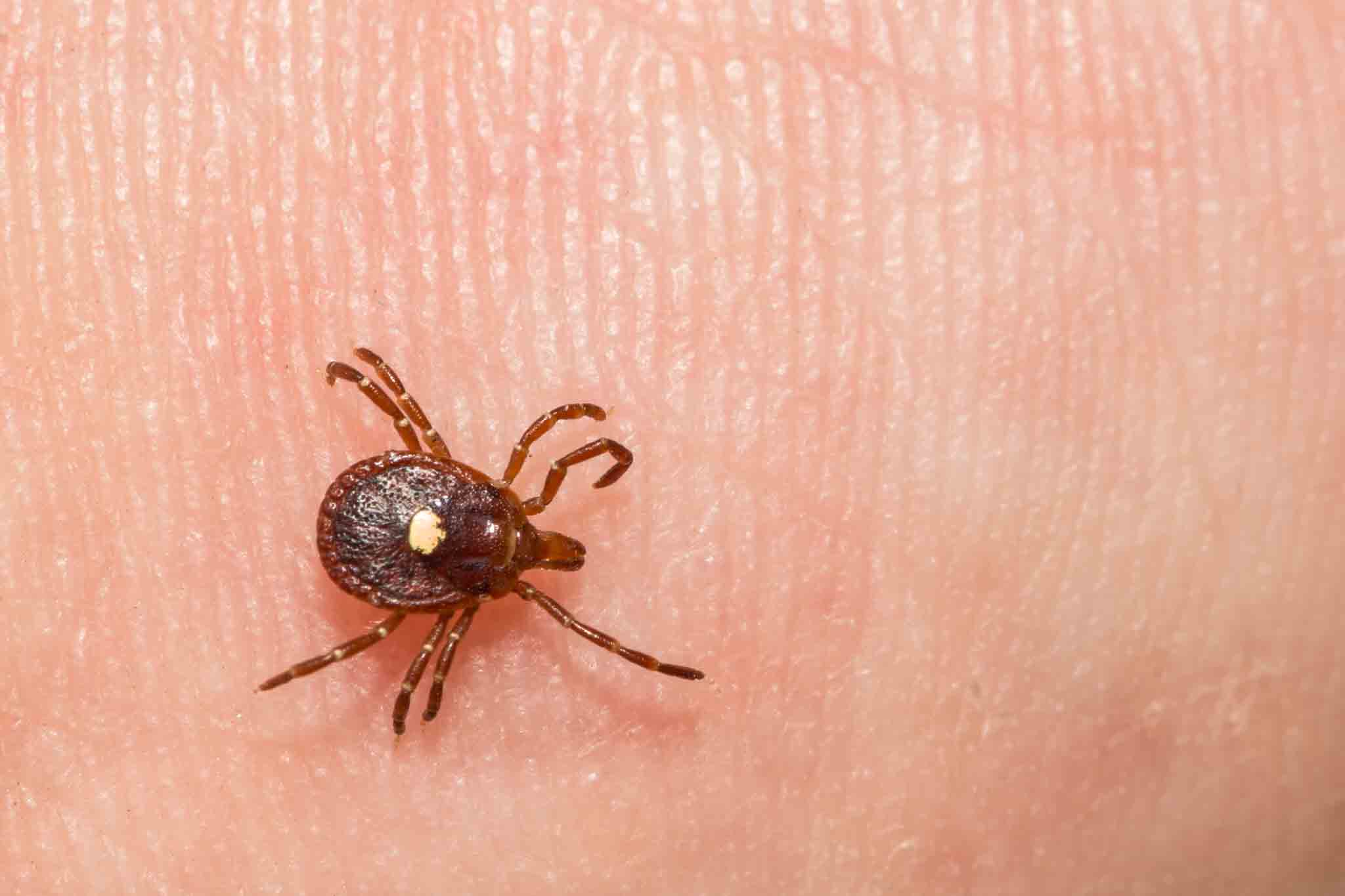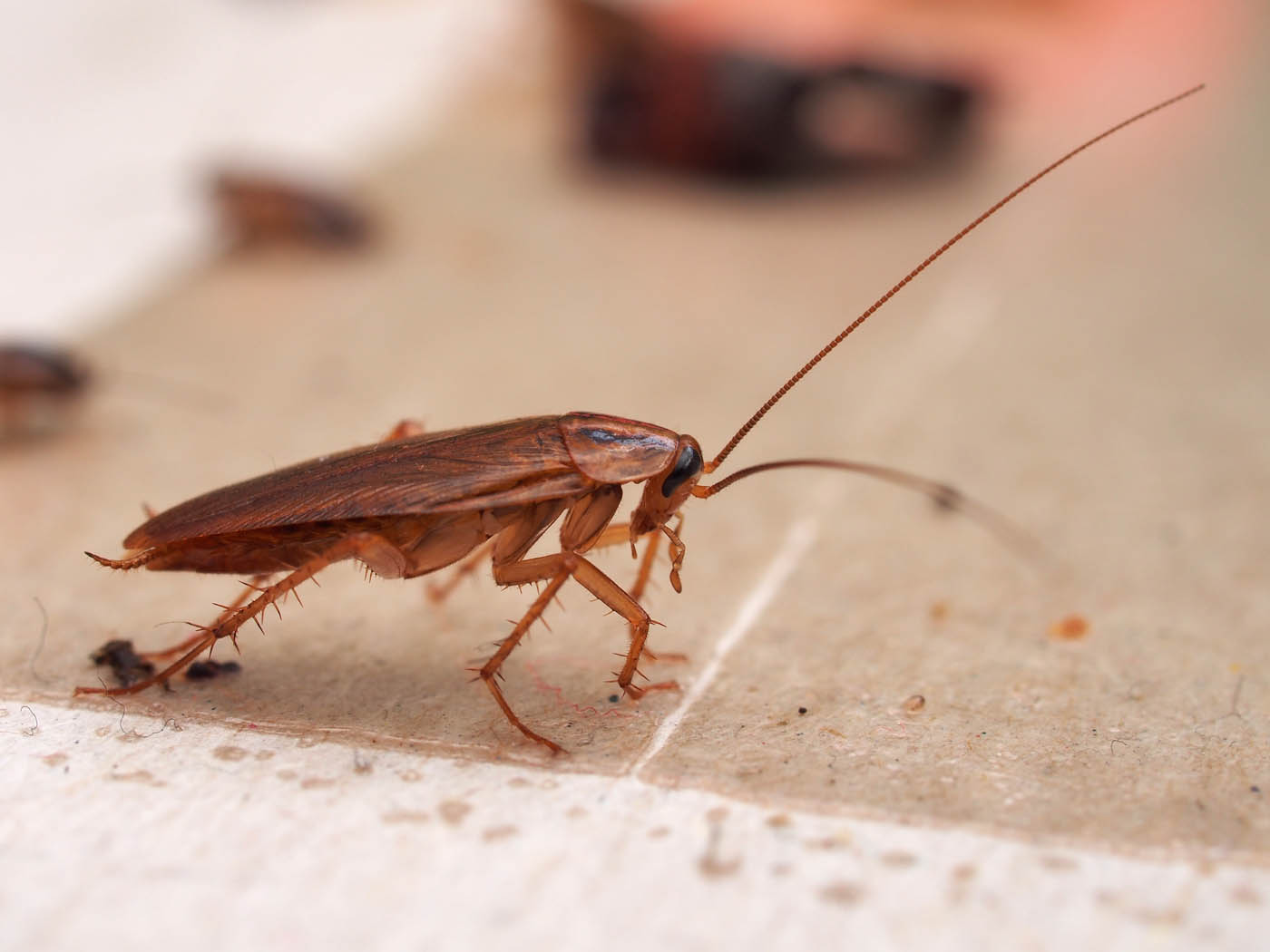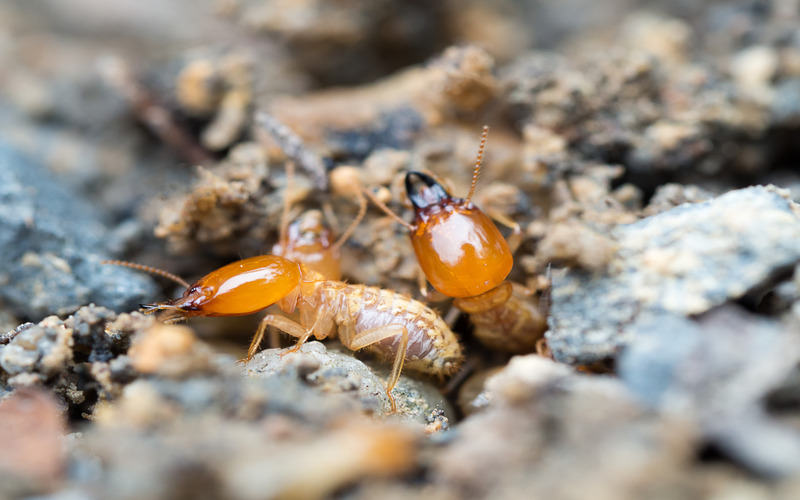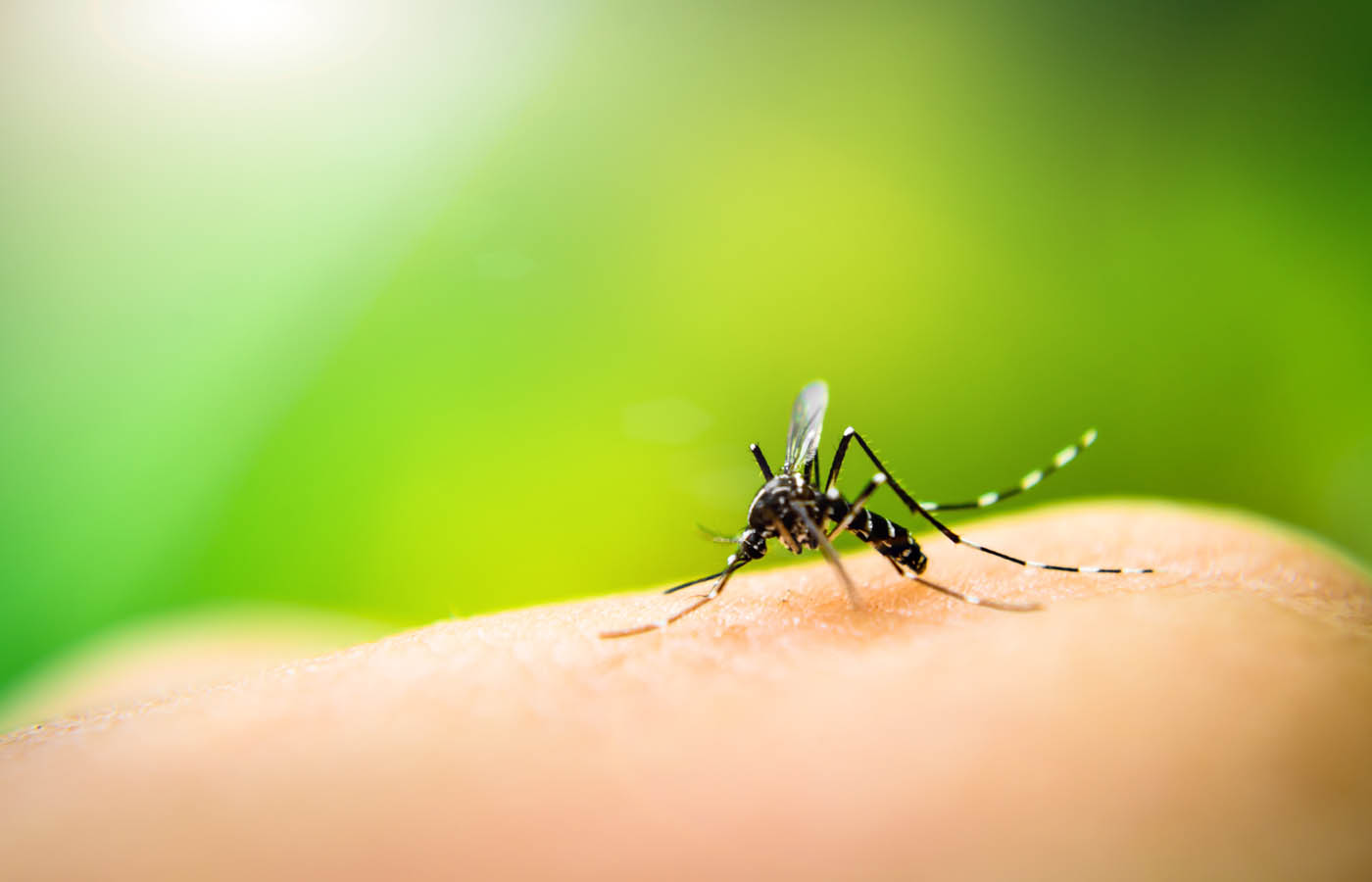Get Rid of Bees & Wasps Jun. 20th 2012
What To Do When You Need To Get Rid Of Bees Or Wasps Beehive Many pests are part of the circle of life, whether it's as a food source or eating decomposing flesh. However, when one is scurrying inside our homes or buzzing around our heads, it's difficult to appreciate them. Insects that we should appreciate are honey bees.
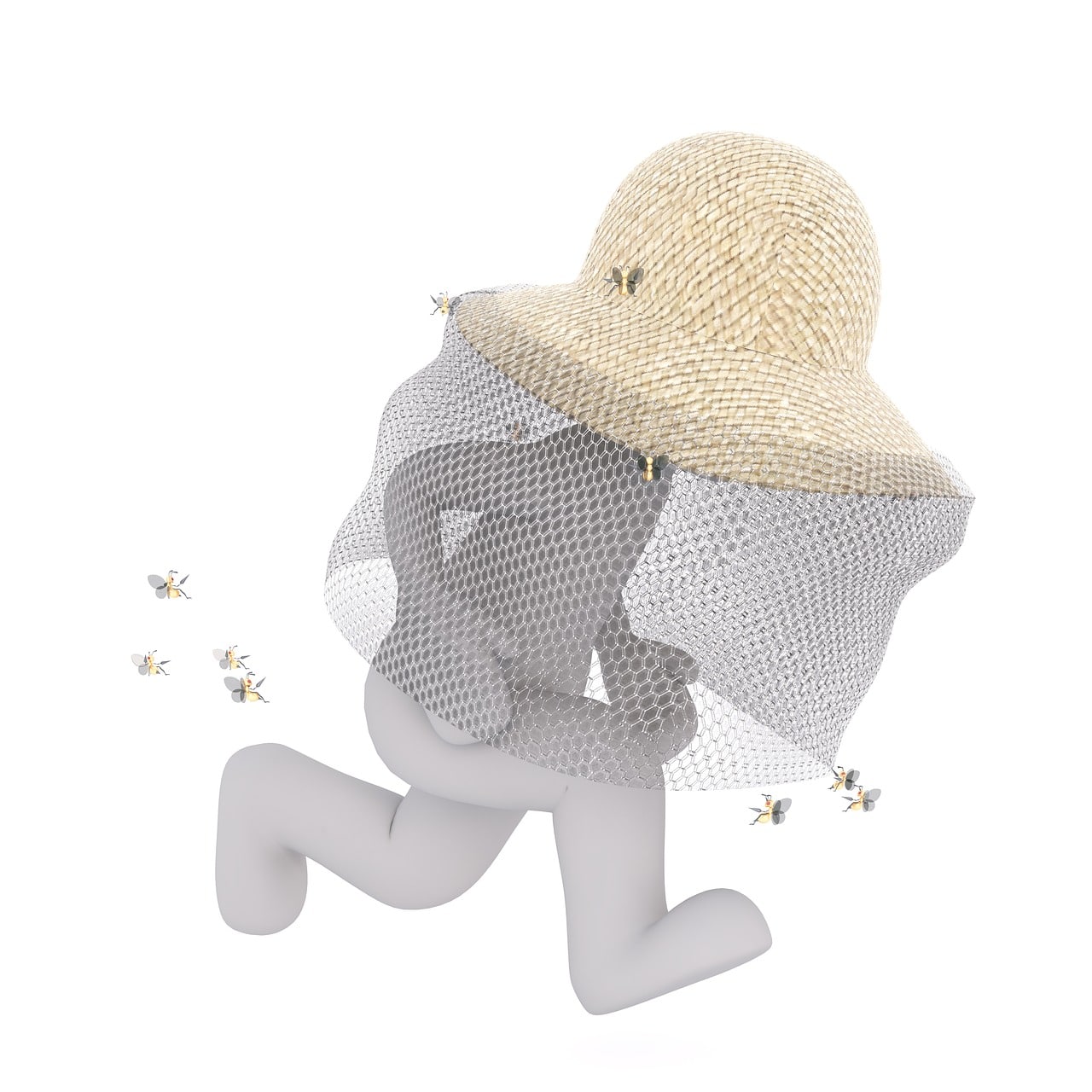
What To Do When You Need To Get Rid Of Bees Or Wasps
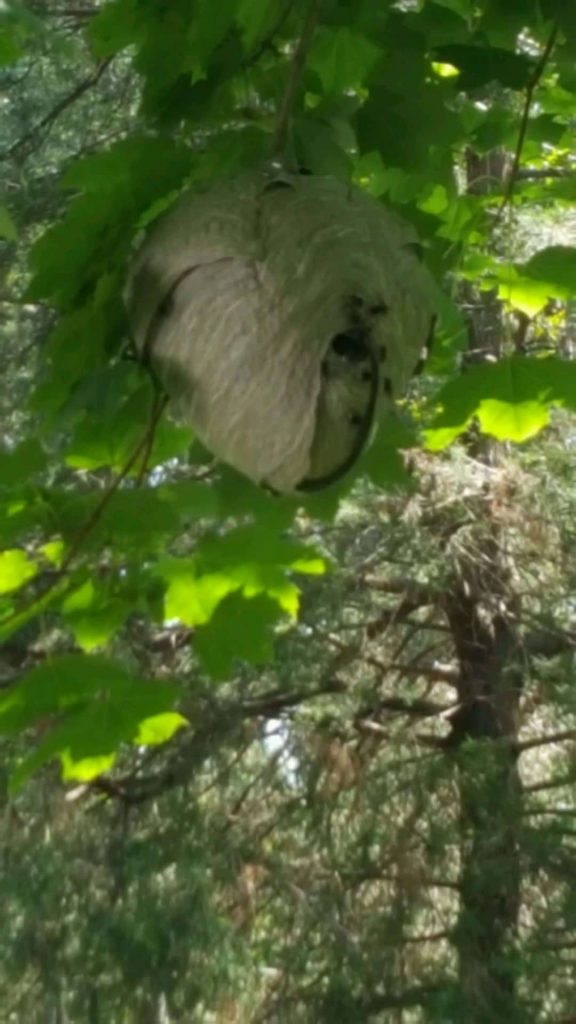 Beehive
Beehive
Many pests are part of the circle of life, whether it's as a food source or eating decomposing flesh. However, when one is scurrying inside our homes or buzzing around our heads, it's difficult to appreciate them. Insects that we should appreciate are honey bees.
It is well known to much of the general public that honey bees are important. The primary reason for this has to do with pollination. Unfortunately, there are times when swarms of honey bees can become a problem.
Bees need to be protected, but they do pose a threat to people with their stingers. A bee-sting can be painful, and even worse for people with allergies. We recommend bee removal services over trying to kill them on your own. This is because - 1. it's dangerous to do by yourself, and 2. because we shouldn't be killing these important insects.If left alone, bees shouldn't bother you, but that's hard to tell someone who has a bee buzzing around them. If you find yourself surrounded by too many bees, follow this guide to help find a solution. Also, contact your local bee specialist as soon as you can.
Why Do Bees Swarm
One thing that frightens people the most is when bees swarm. Why do these flying creatures swarm? Let's take a look at a few bee and wasp facts that will help explain this, and allow you to be safe around them.
-They have a job to do
We've all heard the scary tales of the Africanized bees, ones that are highly aggressive. But what about the little honey bees that fly around during the spring pollinating our plants and flowers? You might have noticed that those will swarm as well, which can be annoying and dangerous.
These bees have a job to do and that is one reason why they swarm. They're simply trying to get their jobs done and while it may seem like they're flying around haphazardly, the truth of the matter is that they are highly organized. Bees live for two reasons: to reproduce and to make honey for the winter months.
-Hive mind
You've no doubt heard the term "hive mind" before. Honey bees exist as eusocial (the highest social order in the animal kingdom) within a colony. Rather than seeing themselves as individuals, they work in unison as one living, breathing entity. A great example of what this means is demonstrated when there is a lack of food.
These bees will not fight over the food, nor will they attempt to keep the queen alive by allocating more food to her. Instead, they will continue to divide up the food evenly and will all live or die together. This "single unit" mentality is a big reason why they all bees swarm. They don't stray too far from the rest of the group.
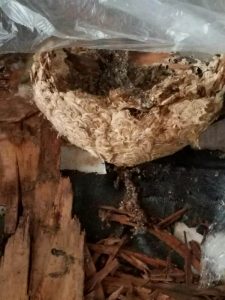 Bee Hive (Photo Credit Rest Easy Pest Control)
Bee Hive (Photo Credit Rest Easy Pest Control)
How to Get Rid of Bees & Wasps
If the bees aren't in huge numbers, it may be possible to take care of the problem yourself. Very often, bees stray a small distance away from their hive. Just because you see a few flying around, this doesn't necessarily mean that there's a hive dangerously close to your home. -Leave them aloneSince honey bees are useful, and often essential, you should first try to simply leave them alone. Unless they're of the Africanized variety, they won't bother you and they'll go back to their hive once they're done doing their business.
-Call a beekeeper
Bees are a commodity for some people and sacred to others. If you find a small hive on your property or nearby, call a local beekeeper and ask if they'd like to pick it up. Very often, they will either take the hive for their own use or move it to another location, away from human contact.
Beekeepers take the care of honey bees very seriously and will do whatever it takes to salvage a colony, if at all possible. What's equally important is that they have the tools to do this safely and effectively.
-Call a professional
If you're a homeowner, you're probably accustomed to taking care of a variety of tasks and needs around your home. But no matter how handy you are around the house, it is very important that you never attempt to eliminate bees or wasps by removing or destroying their hive or nest from your property.
Doing so will do nothing but make the creatures angry, and you're very likely to get stung, perhaps several times. Each year, many people get stung because they attempted to remove a large number of bees or wasps from their homes.
If you find honey bees inside or outside your home, and there isn't a beekeeper available, give your local pest control company a call. If you cause them to swarm about you, you can be stung hundreds of times, which can be fatal. At the very least, you'll be in serious agony and need emergency medical care.
To get rid of bees and wasps, it's much wiser to call a professional pest-control specialist, who can:
- Determine the types of wasps or bees that have infested your home or yard and treat accordingly
- Find all nests and safely destroy them, including concealed nests
- Drill into structures if necessary to inject pesticides (Bees and wasps sometimes nest several feet away from where they are entering a structure, and simply putting pesticides into the hole isn't sufficient in such cases.)
- Spray commercial-grade pesticides that aren't available to the public
- Educate you about preventative measures you can take to prevent re-infestation
- Set up a regular pesticide treatment schedule.
Rest Easy Pest Control
Unfortunately, we have come across people who have tried to handle the problem on their own and later found out they were allergic to bees. They had all sorts of health problems after being stung.
If you would rather not find out the hard way that you are allergic to bee stings, do yourself a favor by seeking our services right away at Rest Easy Pest Control.
As a professional pest control service, we have all that we need to safely remove the problem for you. Our team of expert team of exterminators in NY has successfully removed hundreds of nests. We also use the safest pest control products when treating a bee infestation.
Tips to Avoid Getting Stung by Bees and Wasps
There are differences between wasps and bees, but what most people are concerned about is how not to get stung. Here are three simple tips that can help you avoid the pain�and possible allergic reactions�caused by their stings.
#1. Don't Panic
If you freak out and start swinging or swatting at bees or wasps, they're likely to take that as a sign of aggression and sting you. If bees or wasps are around you, their purpose is not to attack you�they're looking for pollen or food.
They can be irritating and understandably unnerving, but they are far less likely to sting you if you remain calm and move gently. Jerky motions will upset them more than they're upsetting you.
#2. Avoid Perfumes
One of many interesting facts about bees which most people know of is that bees are attracted to flowers. What attracts bees to flowers is similar to their attraction to your perfumes. So if you're going to be outside during warm weather when bees are prevalent, it's not a great idea to use perfume or a scented soap or shampoo that have a flowery smell. You will smell nice �so nice that a bee will be attracted to you as if you were a flower.
#3. Don't Get SweatyBees also react to the smell of sweat. It makes them aggressive. Of course, if you're working or exercising outside, you can't prevent sweating�nor should you want to. But lack of bathing leads to a sweaty body odor that can be avoided by keeping yourself clean.
Particularly if you're going to be working outside where bees are likely to be present (e.g., a garden), it's a good idea to bath with odorless soap and shampoo if you haven't done so recently. You'll probably still sweat, but at least you'll start out relatively smell-free.
#4. Avoid Bright Colored ClothingAnother way to be safe if you're going to be working outside is to avoid bright colored clothing, which attracts bees like the bright colors of flowers.
#5. Clean Your Food and Drinks
Wasps are attracted to human food, and something as simple as a glass on the counter with remnants of a sweet soda in it can attract wasps.
So don't leave out food or drinks, or traces of them, and regularly empty trash cans that contain food. If you're going on a picnic or otherwise eating outdoors, try to keep the food sealed up as much as possible.**
